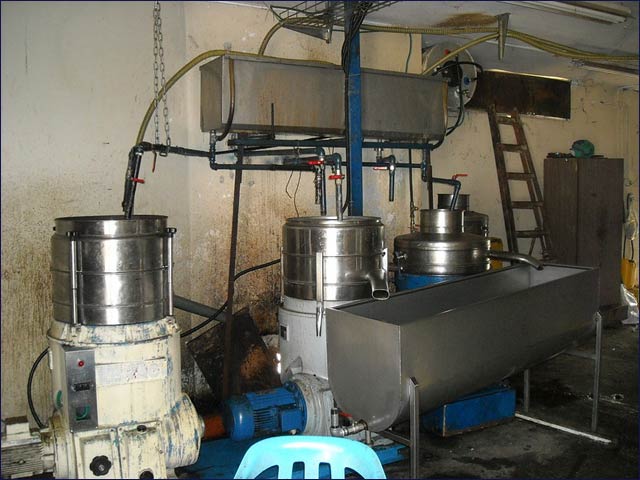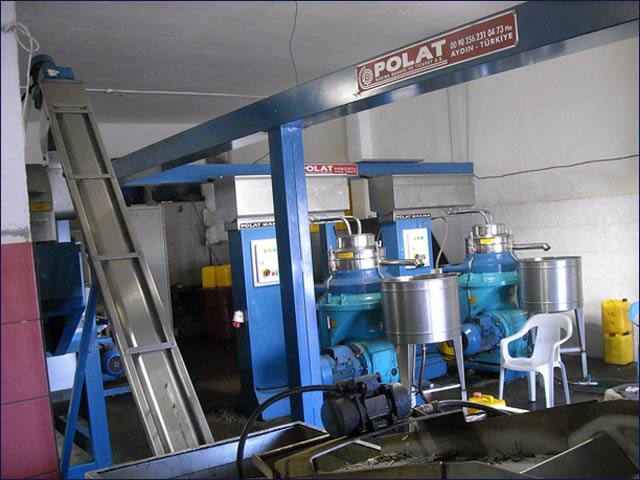By Rivka Borochov
Hitting three birds with one stone is a new Israeli technology that can process winery leftovers, olive-oil mill and cheese-making waste, producing bio-gas and clean water for irrigation.
Developed by the Israeli water company Peleg Hagalil and MIGAL Galilee Technology Cente, this portable sewage treatment plant called MISTOWW -- Mobile Integrated Sustainable System for Treatment of Organic Waste Water -- is built to handle heavy biological loads from small boutique agricultural businesses.
In North America and Europe, more and more people are setting up organic farms and wineries, but they have a quandary: how to deal with the waste that the sewage systems can’t handle.
Large olive-oil mills, wineries and cheese factories normally build their own on-site sewage treatment plants, but the cost is too high for boutique business owners in Israel and southern Europe, and instead they often pollute the environment.
The problem is so widespread that the European Union has helped finance this Israeli-led solution to provide an outlet for change. MISTOWW’s mobile waste treatment unit can be shared among businesses or within a cooperative to offset the cost of investing in a permanent water treatment plant.
Mobile-minded
“The European Union understands what the project is about and is interested in investing in it. We provide a solution for a real problem that we have identified firsthand,” says Eddie Schossev from Peleg Hagalil. His company financed the other half of the budget to develop the MISTOWW prototype created at the MIGAL center. Peleg Hagalil owns the technology IP.
“Our solution is based on a system that can be transferred or moved from one place to another. If you build a very big refinery you will build or invest in your own waste treatment solution,” Schossev says. “But if you are small enough, it would not be cost effective to build your own solution.”

MISTOWW is portable so it can be shared among several businesses
Schossev explains that biological waste dumped down the drain from agriculture damages sewage treatment plants because it interferes with the bacteria that break down the waste. And byproducts left from olive mills and wineries can’t be dumped on land, because they are harmful to groundwater, he says.
In Israel, the consequence of illegal dumping, especially from olive-oil presses in and around small Galilee villages where environmental awareness may be lacking, is a regular suspension of sewage services every year around olive-pressing time. The system simply can’t handle the waste, and it takes time for the bacteria to bounce back.
“We are dealing with very diverse populations here in Israel -- Jewish, Arab, Druze -- and all kinds of systems. The variety of infrastructure is quite immense and is lacking in some places,” says Schossev, whose company has a keen interest in changing the way small businesses process their waste.
Three steps, three rewards
MIGAL researchers Prof. Giora Rytwo, Prof. Iggy Litaor, and Hassan Azaizeh developed the three-stage technology.
In the first stage, the MISTOWW system settles the organic waste, separating it using polymers and a type of clay. In the second stage, a unique bacteria “fixes” the waste for bio-fuel. Finally, leftover water is processed internally in an “accelerated wetland” -- all contained within the mobile unit.

MISTOWW safely processes agricultural waste
Researchers estimate that MISTOWW will be able to process 20 cubic meters of water per day, but field tests at the Dalton Winery, and then later at olive-oil presses elsewhere in Israel, will give the developers a precise handle on how the system will cope with different kinds and concentrations of bio-waste.
The company is seeking investments to bring the technology from prototype stage to a full-fledged product. It’s anticipated that units can be sold directly to boutique businesses, or licensed to developers who would like it as part of their platform of technology, says Schossev.
In the coming year, the project coordinators seek to set up a couple more pilot plants in Europe as a proof-of-concept to small businesses there. The industry doesn’t tend to latch onto new ideas quickly, explains Prof. Uri Marchaim, who also heads MIGAL’s department of biotechnology and regional development, so demonstration sites must be set up to show how the technology works.
This will likely be coordinated through MISTOWW’s two European partners: the University of Patras in Greece and CETENMA Technology Centre for Energy and the Environment in Spain.